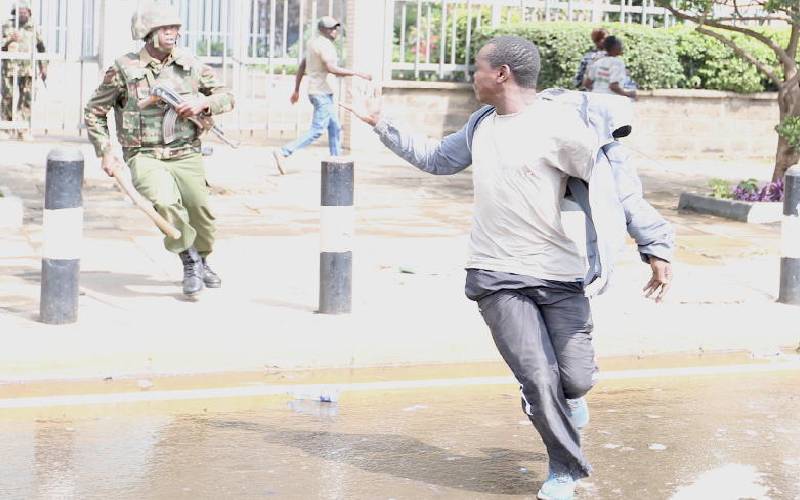×
The Standard e-Paper
Kenya’s Boldest Voice

Utumishi kwa wote. That motto does not give Kenyans a sense of security, yet it is supposed to. It inspires mistrust, insecurity and fear. Service to all is a motto that provokes hate – and hatred towards the Kenya Police Service and triggers retaliation by officers who keep proving that protecting Kenyans is the last in their list of tasks.